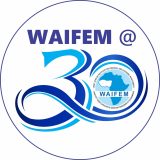The West African Institute for Financial and Economic Management will organize a Regional Course on Microfinance, Financial Inclusion and Poverty Reduction,in Banjul, The Gambia from June 16 – 20, 2025.
Introduction In recent decades, microfinance and financial inclusion have emerged as critical components of global and national strategies aimed at reducing poverty and fostering inclusive economic development. As traditional financial systems often fail to reach large segments of low-income and vulnerable populations, microfinance institutions and inclusive financial models have sought to fill this gap by providing accessible, affordable, and appropriate financial sources to those historically excluded.
The importance of financial inclusion derives from the promise it holds as a tool for economic development, particularly in the areas of poverty reduction, employment generation, wealth creation and improving welfare and general standard of living. Thus, there is the need to build capacity in the development, regulation and operations of micro-finance institutions for effective and efficient management of micro-finance programmes within WAIFEM member countries.
Objective
The course aims at enabling participants to learn innovative strategies in the leadership and management of microfinance institutions; upscale their skills in microfinance programming and the role of financial inclusion in poverty reduction; develop a critical analysis of the broader issues and environment in which microfinance initiatives are based. This would help to analyze and adapt current best practices from varied experiences to their own situations.
Broad Themes
The broad themes to be covered at the course include:
- Development and management of micro enterprises: prospects and challenges;
- An overview of financial inclusion vehicles for poverty reduction;
- Governance issues (ethics, staff development, etc);
- Product development and client analysis;
- Regulatory frameworks for microfinance operations;
- Strategic planning for MFIs;
- Improving operating efficiencies;
- Management information system for MFIs;
- Opportunities and challenges of financial inclusion for poverty reduction;
- Issues relating to consumer protection;
- Risk management; and
- Delinquency management and interest rate setting.
Benefits to Participants/Countries
The course is expected to deliver the following benefits:
Enhanced service delivery by microfinance institutions to micro and small enterprises;
- Increased accessibility to financial services by micro-enterprises in the countries of member central banks; and
- Appreciate the impact of financial inclusion on individual, organization and the economy.
Who May Attend
The course is designed for senior/middle level staff of central banks, national microfinance agencies, microfinance institutions and practitioners, rural/community banks, economic and financial policy-making ministries and NGOs involved in the supervision, management and operations of microfinance institutions.
Delivery Modalities The course will be delivered by experienced professionals drawn from within the sub-region using plenary sessions, case studies, experience-sharing and syndicate sessions.






